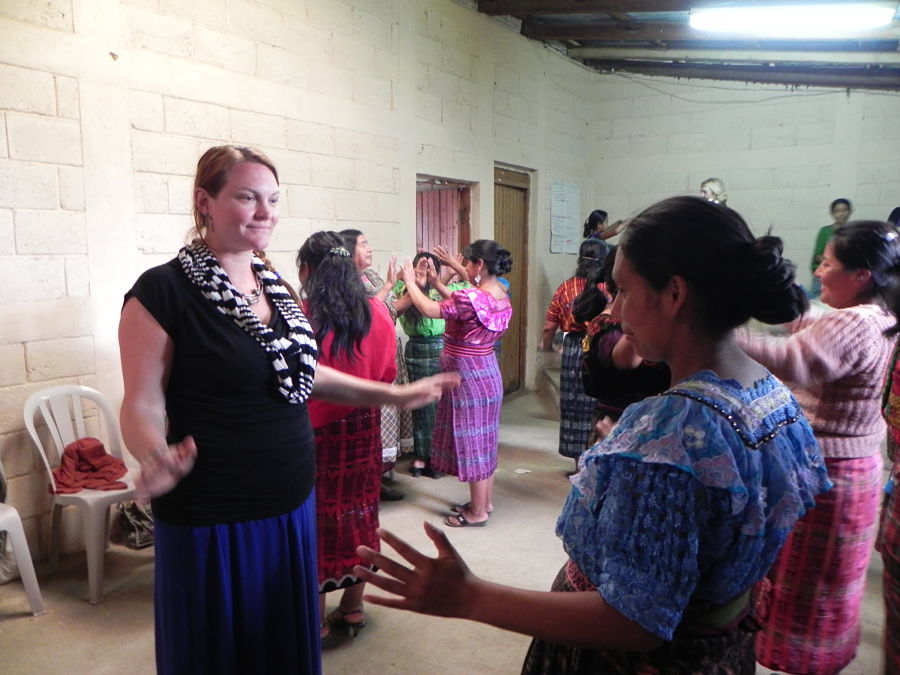LOUISVILLE, KY.: Art imitates faith in the case of Looking for Lilith (LFL), a women’s ensemble theatre company that has, in addition to creating its own theatre work, been traveling to Guatemala for nearly a decade to work with women there on original theatre pieces.
The connection began when Jennifer Thalman Kepler, the troupe’s outreach director, taught literacy and leadership skills to women in rural Guatemala, in a volunteer program run through the Presbyterian Church USA. When one of Kepler’s workshop participants asked her what her job was back in the States, and she explained that she worked for a women’s theatre company that created original plays based on women’s experiences, the woman said, “Well, why don’t you bring them here, and do that with us?”
In 2005, Kepler returned to Guatemala with a group of LFL artists to use Theatre of the Oppressed and forum theatre techniques to create a dialogue with the Guatemalan women based around two questions: “How does your faith liberate you?” and “How do the structures of your faith oppress you?” And though the work began around issues of faith, says company member Kathi E.B. Ellis, it soon became focused on practical issues women face in their community, including health care access and domestic violence.
Now, after years of one-way travel, LFL will finally bring six of its Guatemalan partners to the U.S. for a visit, Oct. 4–24, in a partnership that includes two churches in Virginia, where PCUSA’s headquarters are located. They’ll use the time together to create a new work based on their 10 years of collaboration. “We’re not sure what to call it—a compilation? It will be a short original piece that will be presented later this fall at the Slant Culture Theatre Festival here in Louisville,” says Ellis, who added that the company would reach out to local Latina performers to round out the cast.
The troupe’s name gives some hint of its feminist agenda—Lilith was legendarily Adam’s first wife, and is often seen as a suppressed icon of female energy counter to the patriarchal Judeo-Christian tradition. But that tradition is still very much a part of the mix. “This program absolutely began as way of exploring faith through theatre,” says Ellis. Though the plays they developed together soon took on a more social-justice orientation, Ellis says, the women involved “are all faith leaders in their communities, and faith is central to what they do.” The LFL program, both here and in Latin America, is about “bringing together people of faith and people of the theatre in a way that doesn’t often happen.” Amen to that.





